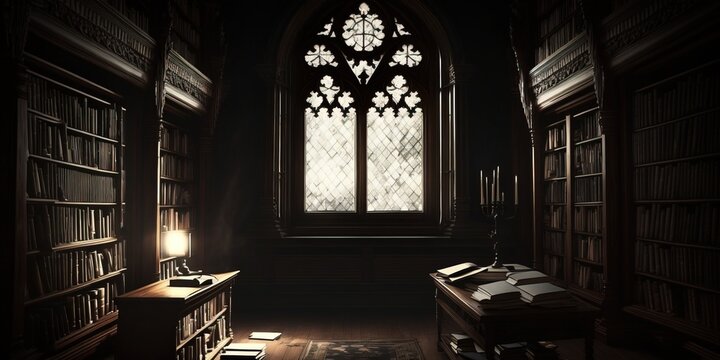
FAQ About Gothic Literature
Gothic Literature
2 years ago | gizem
What is the role of the Byronic hero in Gothic Literature?
The Byronic hero is a complex and often morally ambiguous character archetype that plays a significant role in Gothic Literature. This character type is named after the famous Romantic poet Lord Byron, who created many protagonists with these characteristics in his own works. The Byronic hero typically possesses the following traits:
- Intellectual and Cerebral: Byronic heroes are highly intelligent and introspective individuals. They are often characterized by their keen intellect, sharp wit, and philosophical contemplation. Their intellectualism sets them apart from other characters in the story.
- Emotionally Complex: Byronic heroes are emotionally complex and tormented. They frequently grapple with inner conflicts, such as guilt, melancholy, or a sense of isolation. Their emotional turmoil is a central aspect of their character.
- Mysterious and Enigmatic: These characters are shrouded in mystery and often have hidden pasts or secrets. Their enigmatic nature piques the curiosity of other characters and readers alike.
- Charismatic and Attractive: Byronic heroes are typically physically attractive and possess a magnetic charisma. They draw others to them, often forming intense and passionate relationships.
- Morally Ambiguous: One of the defining features of the Byronic hero is their moral ambiguity. They may engage in morally questionable actions or have a dark side, yet they also often display a sense of honor or a moral code that distinguishes them from outright villains.
- Rebellious and Defiant: Byronic heroes are often rebels who defy societal norms and conventions. They may challenge authority, question tradition, or engage in unconventional behaviors.
- Social Outsiders: These characters often exist on the fringes of society or feel like outsiders. They may be ostracized, isolated, or rejected by mainstream society, which adds to their sense of alienation.
- Tragic Past: Byronic heroes frequently have a tragic past or have experienced significant suffering or loss. This past trauma contributes to their emotional depth and complexity.
- Tendency Toward Self-Destruction: Many Byronic heroes exhibit a self-destructive streak. They may engage in behaviors that harm themselves or sabotage their own happiness.
- Romantic Pursuits: Romantic relationships are a central aspect of the Byronic hero's narrative. They often form intense and passionate love affairs, characterized by tumultuous emotions and dramatic conflicts.
In Gothic Literature, the Byronic hero often serves several roles:
- Protagonist or Antihero: Byronic heroes are frequently central characters in Gothic novels. Their inner conflicts and complexities drive the narrative, and readers are often drawn into their emotional turmoil.
- Exploration of Inner Darkness: Byronic heroes embody the duality of human nature, exploring the dark and light aspects of the psyche. They grapple with their own inner demons and moral ambiguities.
- Conflict and Tension: Byronic heroes can create tension and conflict within the story, challenging other characters' values and beliefs. Their presence often disrupts the status quo.
- Moral Ambiguity: The moral ambiguity of Byronic heroes invites readers to consider complex ethical questions and the gray areas of morality.
- Romantic and Emotional Depth: Byronic heroes contribute to the emotional intensity of the narrative, particularly in love stories. Their passionate relationships and emotional struggles are central to the plot.
